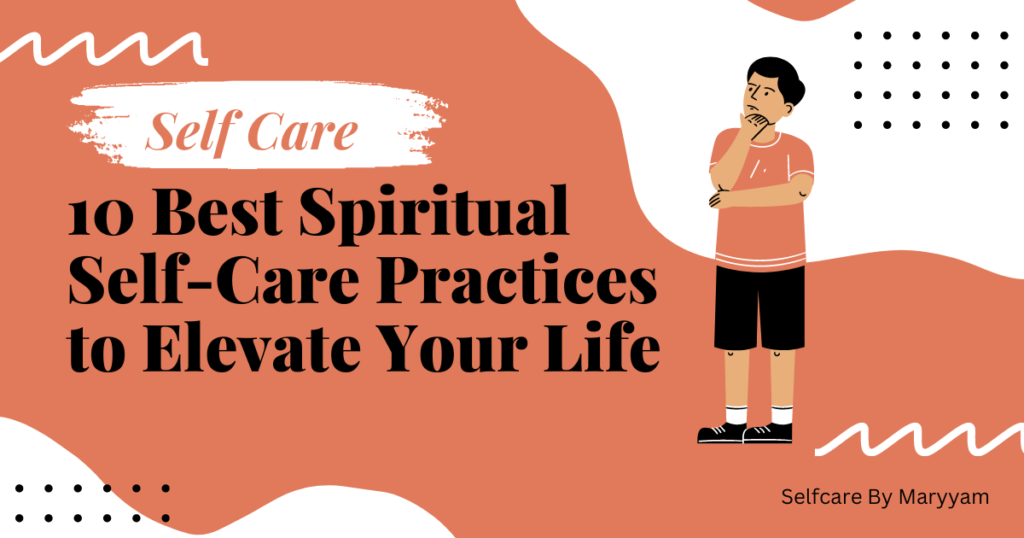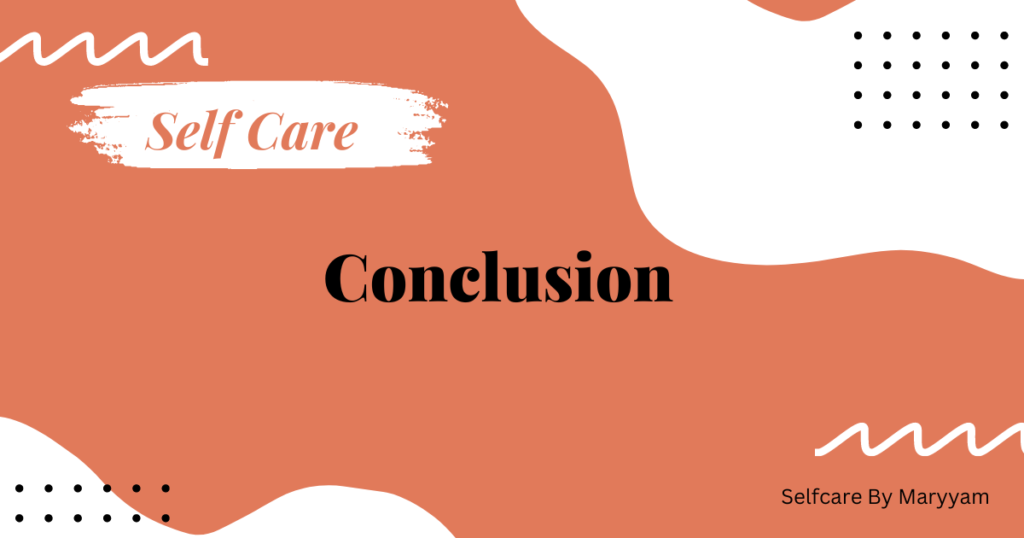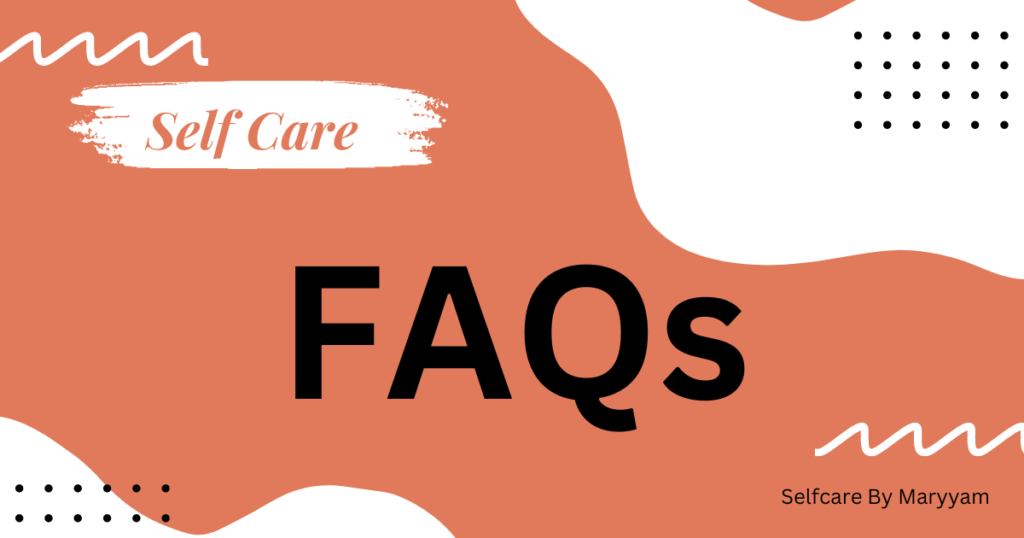Have you ever tended to your spirit? We usually overlook our spiritual self-care practices by focusing on our physical body through nutrition and exercise. However, paying attention to all physical, psychological, social, and spiritual self-care is crucial to a successful life.
Think about the areas of your life you pay the most attention to and any that might require work. There are ways to resurrect spirituality if it is dead. You could discover that you have already engaged in some of these activities; the self-care suggestions are simple. Now, the difference is that you will start to pay attention with fresh awareness.

Table of Contents
What is spiritual self-care?
Different people interpret spirituality in other ways, largely due to the values in their environment. You may equate spirituality with religion or cultural customs. In this sense, spiritual self-care consists of following rituals, attending religious events or ceremonies, and reading religious books.
Your definition of spirituality is felt in the surroundings, with each other, or inside oneself. Ultimately, even if you experience it, anything significant can spark holiness. One develops spirituality personally. Whichever road you take, it all leads to some degree to what you want: the need for connection, purpose, and happiness.
A spiritual self-care practice is any custom that enables you to reconnect with the real you, your genuine self. The real you is the unadulterated expression of who you are, presented to the world. It feels fitting and is also inspiring and motivating. Perhaps you have already gone through it or have seen a glimmer of how it feels or looks. Managing life calls on you to be aware of your emotions. Using spiritual self-care helps you reach this side of yourself and has various benefits.
Why is self-care spiritually important?
You can be the healthiest person on earth, both physically and emotionally. Yet, you may experience illness or feel something is lacking. Emotional and spiritual well-being greatly influence both the mental and physical bodies. Loneliness has become a pandemic. Your ancestors lived in communities, and this way of life had many advantages—especially psychological and emotional. It would help if you tried, especially today, to find ways to feed this side of you.
Investing time in spiritual self-care makes one soulful. It offers comfort and clarity, as well as contemplation. Studies have shown that maintaining a spiritual life is beneficial for health. An approach to spiritual self-care calms the mind. It enables you to start feeling and respecting what your heart wants and to get the confidence to act necessary for a good transformation by helping you to calm your inner worry. You will know deep down that when you are happy and flourishing, your body and emotions cannot lie. You deserve to live here. With spiritual self-care, you can:
- Improve your contacts and exchanges with other people.
- Increase your inner serenity and find the causes of your happiness.
- Boost unity and humanity’s feelings.
- Lessen your loneliness and isolation.
- Strengthen your rapport with yourself.
Not knowing where to start? These ideas for spiritual self-care should get you going.

1. Do yoga
Designed to balance your body, mind, soul, and spirit depending on your present situation, yoga is more than just a great exercise; the physical advantages are well documented. It helps you link with your body and the emotions buried deep inside. With the knowledge that you are establishing a strong basis for a more empowered existence, yoga encourages nonjudgment and acceptance of where you are in life. There are several forms of yoga; research the ones you want to try.
2. Try meditation
Among the simplest and most readily available spiritual disciplines is meditation. Starting may need some encouragement, but it’s hard to imagine life without it once you’re going. Various advantages of meditation include less stress and a closer relationship to who you are and what you want out of life.
3. Try mindful walking for Spiritual Self-care
Walking should be given more credit. Studies show that strolling can aid those suffering from mental health problems. While all kinds of physical exercise are good, walking is special. It lets you stop time and concentrate just on the present. Subtle ways to centre and nourish the senses are breathing in the fresh air, feeling the concrete under your feet, and seeing the great open sky. Walking with awareness has several surprising advantages.
4. Clear your head
Keeping an open, clear space around you is a great habit. You always give others knowledge and energy, so you are usually influenced. When you’re tired or depressed, it’s hard to reach your inner self. Clearing your surroundings—including mental space.
5. Relate with Community
People are, by nature, social beings. Sadly, your present way of life does not always support this kind of living. Among the advantages of community are connection, laughter, idea sharing, emotional support, and the fortitude to keep on. Suppose you do not already have these ties. In that case, you might have to venture outside your comfort zone to create some. Join a reading club, volunteer, meet individuals with your hobbies, attend religious or cultural activities, or have a game night. The work will pay off!
6. Notes for Spiritual Self-Care
Another approach to accessing the caverns of your heart and mind is journaling. Writing sifts and organizes ideas and feelings. Negative emotions, concerns, and problems can clutter the mind and sap your spirit. Put everything down on paper and watch the results. Fresh revelations of wisdom could show themselves. A morning or evening ritual could complement journaling well. Try several methods for journaling; make it work for you.
7. Read Motivating Content
Though it sounds basic, this can help you see life differently. Please pay attention to your daily exposure to things and how they affect your mood. You are overwhelmed with data from various sources, and not all of it is encouraging. It can occasionally take work to get motivated or inspired. Keep a book or other reading item that motivates you on your bookshelf or nightstand. Just before bed, instead of considering your day and any concerns, have happy last thoughts. Starting the day with a few pages read in the morning can also be quite pleasant.
8. Be in the Natural World
One heals in nature. Your senses come alive when you smell the land, hear birds or water, see trees swinging in the breeze, or see waves slamming on the coast. You find yourself disengaging from the day and savouring the restorative power of your surroundings. You are in the moment and experiencing something bigger than yourself. Take regular breaks to spend time in nature, even just a few minutes sitting by a tree.
9. Cut off from Technology
Although technology is a gift, its distracting power is also a drawback. You most certainly check your devices—even without realizing it—every minute. Digital detoxes—where you schedule time to cut off from technology—especially from your smartphone—are becoming popular. The advantages of this are what one would naturally find:
- More time to notice and consider
- More ingenuity
- Enhanced connections
- Better night’s sleep; better awareness of self and requirements
- Try choosing a day when you will cut off texting, browsing social media, and answering emails; set aside time at dinner when all phones are stashed. Your life will start to seem wealthier.
10. Develop forgiveness
To err is human; to forgive is divine. Life is too short and valuable to be wasted by staying in habits that don’t benefit you. Not being able to forgive someone keeps you from really living. When that energy could be used to create your desired life, most of it is redirected to preserving a grudge. There are methods to guide you through this process; the freedom and lightness you experience could transform your life.

Keep present and welcome pleasure and suffering to reach spiritual self-care. Your ego naturally runs toward ease and enjoyment. Discovering the truth about who you are and forging a closer relationship with your actual self requires discipline and coordinated effort. Test one or two items from this list. Stay straightforward. Try something else if you do not find it very beneficial for you. On this pilgrimage, there is no such thing as the wrong way to go. Whatever self-care program you choose, the most important thing is to stick to it.

What are some spiritual self-care practices?
Spiritual self-care practices include prayer and meditation.
How can I elevate myself spiritually?
1. Speak with your religious community.
2. Help others or volunteer yourself.
3. Study yoga.
4. Meditate
5. Maintain a notebook for records.
6. Spend time among the beauties of nature.
7. Give your hobbies first priority.
8. Talk with someone you trust or a chaplain.
What are examples of spiritual care?
1. Some spiritual resources include:
2. Prayer.
3. Qur’an.
4. Meditation.
5. Family and friends.
6. Religious leaders.
7. supportive communities.
8. Digital Detox.
